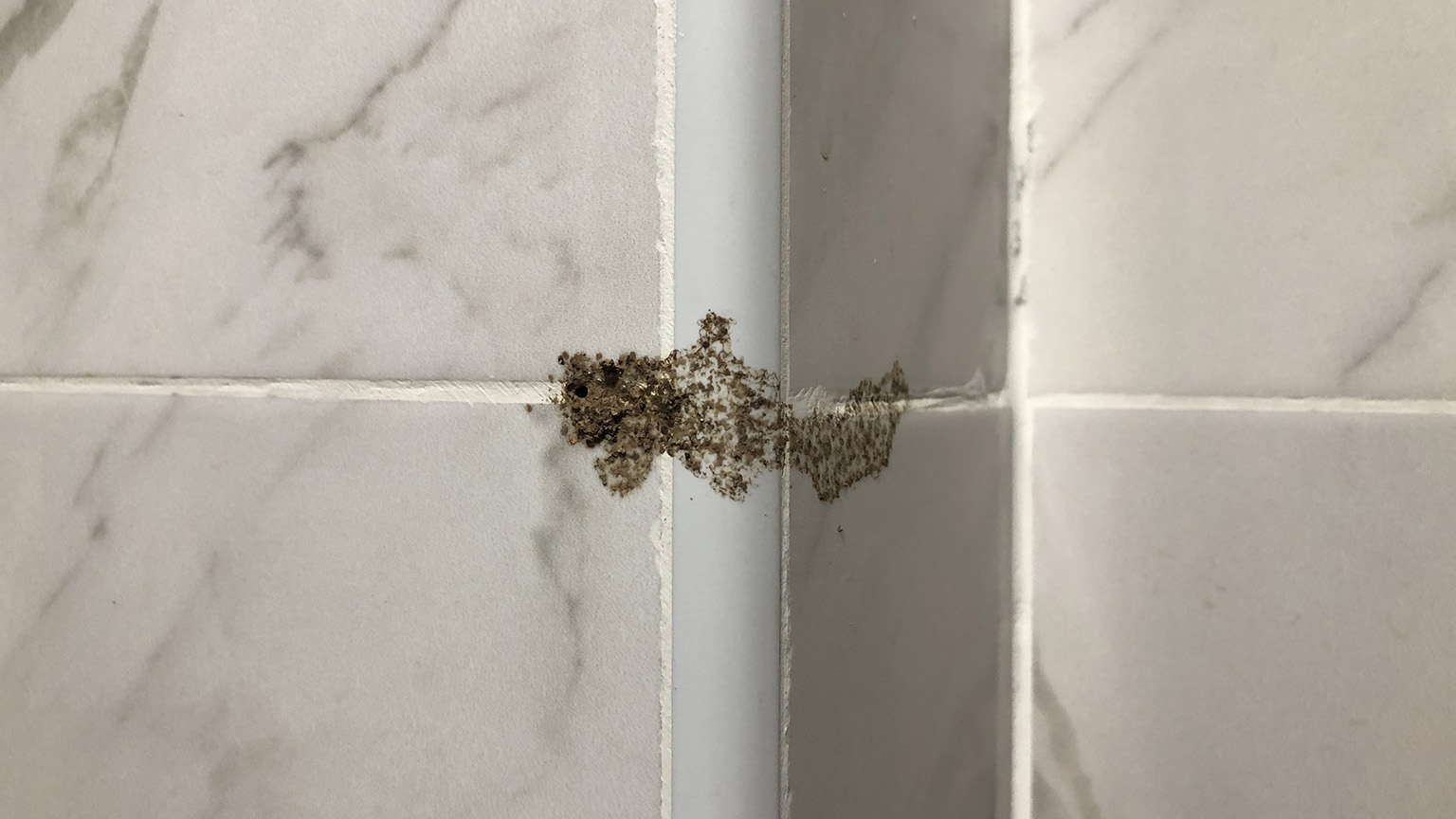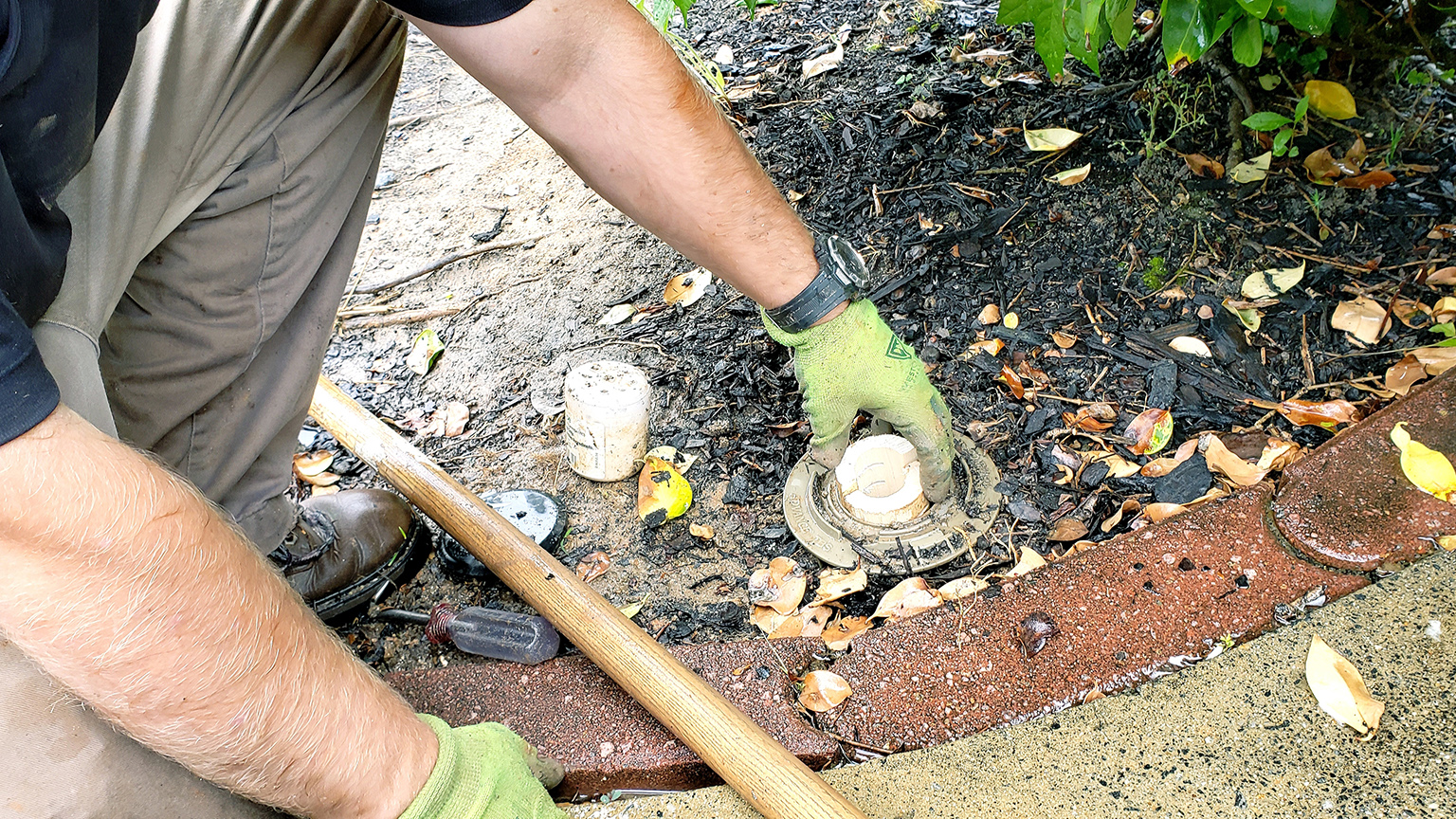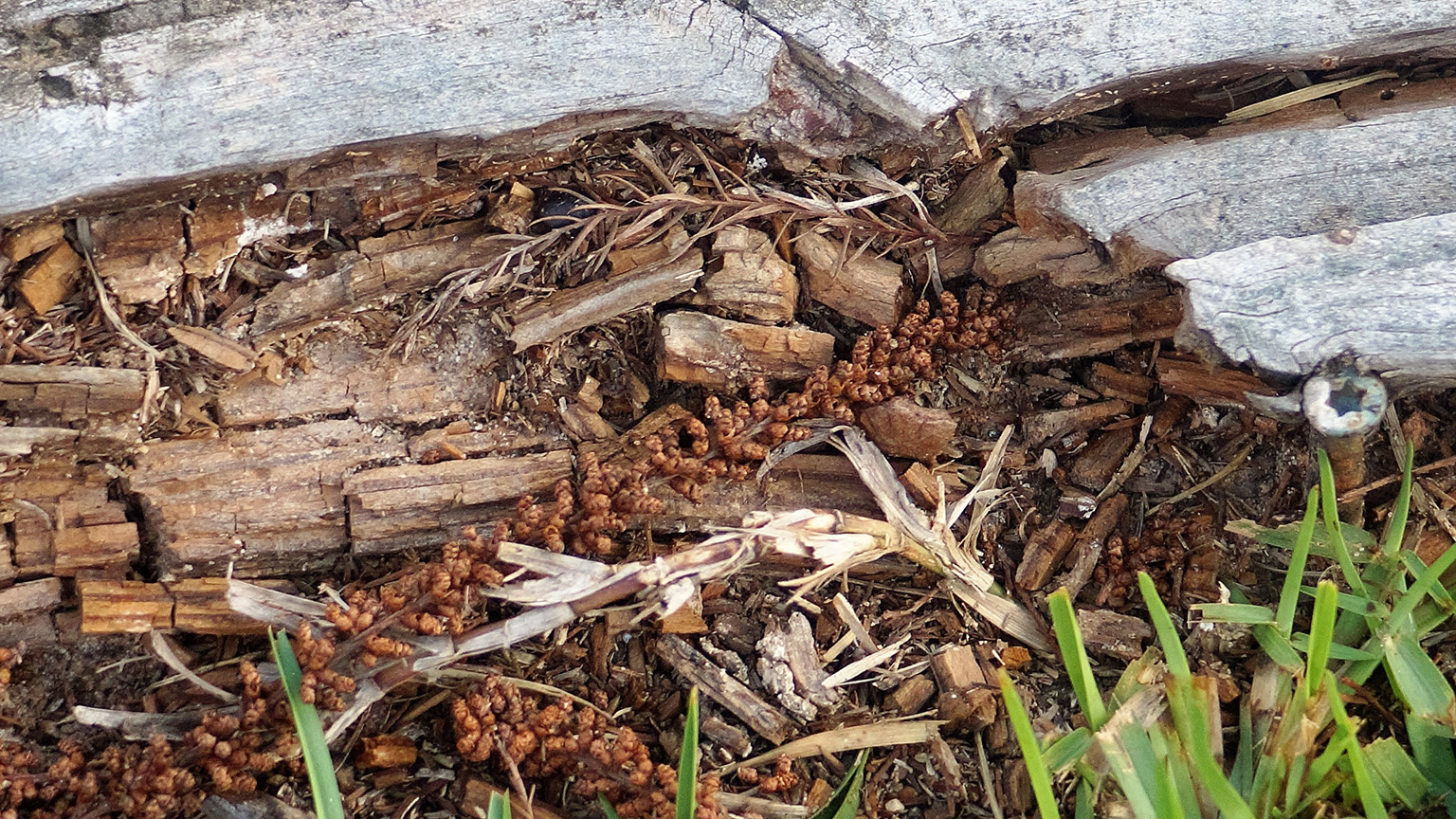Termites are known to cause more damage to homes from the Sunshine Coast and Caboolture Area, to North Brisbane in a year than a fire or flood combined. The threat termites pose to homes is a big reason why you won’t find an insurance policy with termite coverage.
10 Termite Prevention Methods To Protect Your Home
To help you avoid costly termite damage, we’ve included a number of helpful termite prevention tips to protect your home from these dangerous pests.
1. Book an annual termite inspection.
Regular termite inspections are your best defence against the risk of termites!
Professional pest technicians, like ours, will help to properly identify problem areas to make sure any sign of a termite infestation is detected early enough before there’s any extensive or costly damage to repair.
2. Don’t build gardens up against your home.
When vegetation is up against a home, it can often partially or completely cover any weep holes. This gives termites an easy access point from the garden, to weep hole, to the property’s framework.
Gardens can also obstruct your view of the foundation of your home, which makes it difficult to spot any signs of a termite infestation.
Lastly, water damage is the leading cause of a termite infestation! Therefore, keeping plants and moisture away from your home is crucial. If you do have a garden close to your home’s foundation, be careful when watering plants to keep any water or moisture away from the exterior walls of your home.
If you are building a garden on your property, maintain a visual inspection zone around your home. You want to easily access the building edge so you can watch for termite leads. There should be at least a 50 cm gap between any shrubbery and the exterior wall of your home.
3. Don’t block weep holes with plants, mulch, or soil.
As previously mentioned, blocking weep holes can give termites an access point to tunnel into your home. These holes also provide ventilation and help to keep your interior walls dry. Since termites are attracted to water and moisture, keeping your weep holes free of vegetation and debris is important in preventing a termite infestation.
Make sure you do not cover the weep holes in your brickwork. Keep a clear inspection zone that starts just below the weep hole, and monitor it for signs of termite leads.
4. Avoid plants and trees with large root systems.
One of the best ways to prevent a termite infestation is by installing a termite barrier around your home. Unfortunately, tree roots can breach the barrier and give termites an access point to your home.
Dead trees and roots are also problematic. Termites are very interested in dead wood, and a dead tree anywhere on your property can have roots that extend to the perimeter of your home. A termite infestation can start in the stump of a dead tree and travel along the root system leading to your home.
Be aware of any trees or plants with big root systems, avoid planting trees close to your home, and take care to remove any dead stumps from your property. The cost and effort of this will be less expensive than dealing with the damage caused by a termite infestation!
5. Keep your yard clean!
As mentioned above, dead wood is a source of food for termites and, if dead wood is found close to the exterior of your home, it can also create a convenient access point.
Clean up debris, sticks, and twigs and cut and rake your grass regularly. Keep mulch at least 4 inches away from your home, and be careful about the type you use. Some types of mulch are naturally termite resistant (pine needles, pea gravel, or other non-organic sources) while others will serve as attractants as either a food source or nesting place (untreated wood chips, softwood mulch).
6. Avoid building retaining walls, garden beds, outdoor furniture, or other structures with untreated wood.
When wood decays and rots it creates a food source and attractant for termites. This can be especially harmful if the wood is close to your home! To help prevent a termite infestation, don’t build retaining walls, garden beds, outdoor furniture, or any structures with untreated wood.
Keep in mind that all wood, even treated wood, is vulnerable to fungal decay and moisture, so your best defence is to try to avoid wood altogether. This is especially important for things like decks, pergolas, and steps that are in contact with the exterior of your home.
If you do build any structures with wood:
- Utilize metal stirrups to eliminate any contact between the wood and the ground.
- Keep all exterior buildings and structures up to code.
- Consult with a professional pest control company BEFORE building outdoor structures to make sure you’re using the right materials for pests in mind.
7. Be vigilant in preventing excess moisture in and around your home.
Termites require a moist environment to thrive, so controlling excess moisture in and around your home is one of the most important parts of termite prevention.
Watch out for any pooling water or leaks that could be causing water damage and attracting termites to your home.
Common trouble spots outside your home to check are:
- Leaking hot water systems
- Air conditioners — make sure your outflow pipe and/or drip pipe lead far away from your home
- Damaged downpipes
- Blocked drains
- Dripping taps and hoses
Keep an eye out for the following trouble spots inside your home:
- A leaking toilet, showerhead, or tap
- A broken exhaust fan in bathrooms, laundries, and kitchens
- Damaged sealant around baths and showers
- Damaged internal plumbing
- Swelling or blistering of internal walls, ceilings, and skirting boards
It’s easy as homeowners to tell ourselves “if it’s not flooding it’s fine,” but all these things create inviting conditions for termites.
8. Be careful with where you place an outdoor spa bath and how you mount it.
Spa baths create moisture and moisture attracts termites, so it’s no surprise that spas can be problematic when you are trying to prevent a termite infestation.
If you have a spa or are planning to build one, try to refrain from installing it within a timber deck. Otherwise, you’ll be creating a nice, dark, moist place with a food source for termites to thrive. You should also avoid placing your spa directly up against the house and be cautious about the type of mulch you use around the spa.
No matter how you go about it, spas are always risky as they help to create moisture in the soil below them which can attract termites. Our best termite prevention tip is to consult a pest control professional before building a structure near or for your spa bath to make sure you are taking all the necessary precautions.
9. Avoid storing firewood or building materials directly on the ground or up next to your home.
Firewood is a food source for termites, so the last place you want it to be placed is right next to your home!
The best practice for storing firewood is to make sure it is at least 6 meters away from your home and raised at least 20 cm off the ground. This will help prevent termites from moving in on a potential food source.
10. If you find active termites on your property, get them treated by a professional pest technician as soon as possible!
Termites can cause irreparable and costly damage to your property. If you find active termites on your premises, get them treated by a professional pest control technician as soon as possible.
In the time between identifying termites and getting them treated, it is important that you do not disturb them. If you scare the termites off, they will simply hide somewhere else — making it more difficult to find and eliminate them.
Why hire a professional pest control company? Because a professional termite treatment ensures the necessary termiticides are transferred from termite to termite and taken back to the nest and transferred to the entire colony. Most of these high-quality termiticides are only available to licensed technicians and are not available to the general public.
Contact us to keep termites away!
Bottom line, termites are awful and present a real threat to your property. Although there are many DIY tips to help keep termites away, the best way to prevent a termite infestation is with termite prevention barriers and regular termite inspections by a pest control professional.
If you notice signs of a termite infestation or would like to book a termite inspection, contact our team today!


